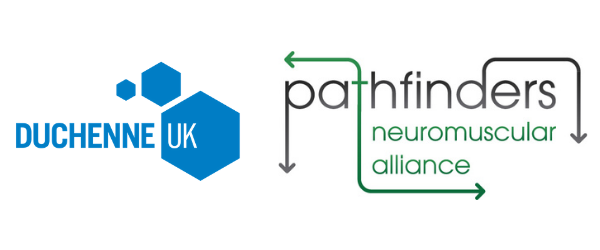
Duchenne UK and Pathfinders Neuromuscular Alliance to address lack of accessible housing for people with muscle-weakening conditions
One of the biggest barriers to living an independent life as a disabled person is the lack of suitable, accessible housing.
This is why Duchenne UK is partnering with Pathfinders Neuromuscular Alliance, a charity run by and for adults with muscle-weakening conditions, to address the lack of choice and control over accessible housing for people with Duchenne muscular dystrophy (DMD) and other muscle-weakening conditions.
“"As an adult living with DMD, the lack of accessible housing has been a major barrier to me throughout my life"”
The project was devised following the outcome of a survey from Pathfinders, which showed that finding suitable housing is the issue that adults with muscle-weakening conditions most want to address.
Thanks to progress in medical research, people with DMD are now living longer, with many adults living into their 30s and some into their 40s and 50s. However, this progress brings with it an urgent need for improved planning and resourcing for adulthood. Currently, adults with DMD and their families are facing difficulties in accessing housing which allows for independent living.
The Accessible Housing Project aims to address this issue by bringing together the DMD community with key government decision-makers and housing providers. It will be led by Dr Jon Rey-Hastie, CEO of Pathfinders Neuromuscular Alliance, and Dr Janet Hoskin from the University of East London. Through a series of focus groups and surveys, they aim to identify the housing needs of people with DMD and their families and explore the current barriers. Following this research, a Housing Working Group will be established to develop a campaign to address these barriers and propose solutions.
Duchenne UK will be investing £15,936 in the project, which will run over the course of six months, and expect to be able to share results by the end of the year.
Dr Jon Rey-Hastie shared his own experiences and aspirations for the project: “As an adult living with DMD, the lack of accessible housing has been a major barrier to me throughout my life, from not being able to live with friends at university to struggling to relocate for work and family. I have had to navigate a discriminatory, complex and inconsistent system to be able to live independently in my own home. It is my hope that through this project we can identify and take meaningful actions to provide more options for other people living with muscle-weakening conditions seeking to live independently.”
If you have personal experiences of seeking accessible housing and would like to be involved in the project, please contact [email protected] to express an interest.
We would like to thank our charity partner, Alex’s Wish, and the following family funds for contributing to this project: Help Harry, Jacobi’s Wish, Jack’s Aim, Ralphy’s Fund, Henry’s Hurdles and Cure4George.